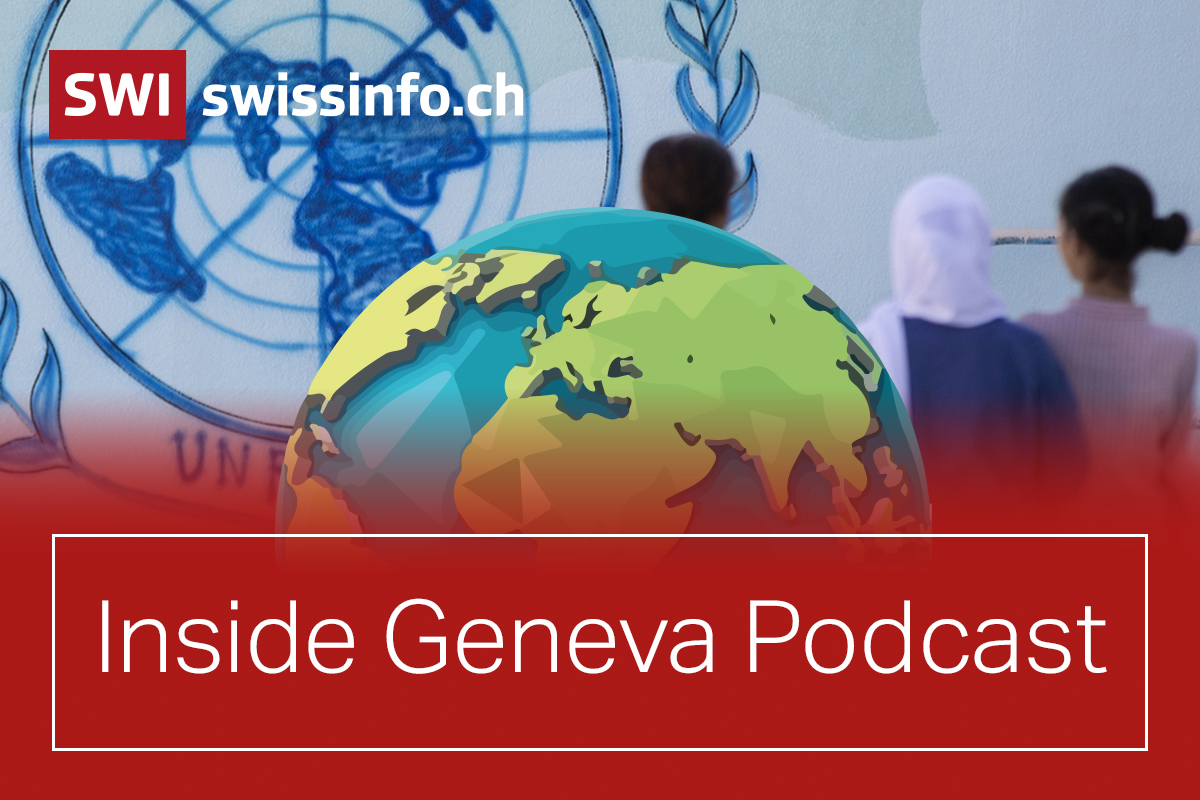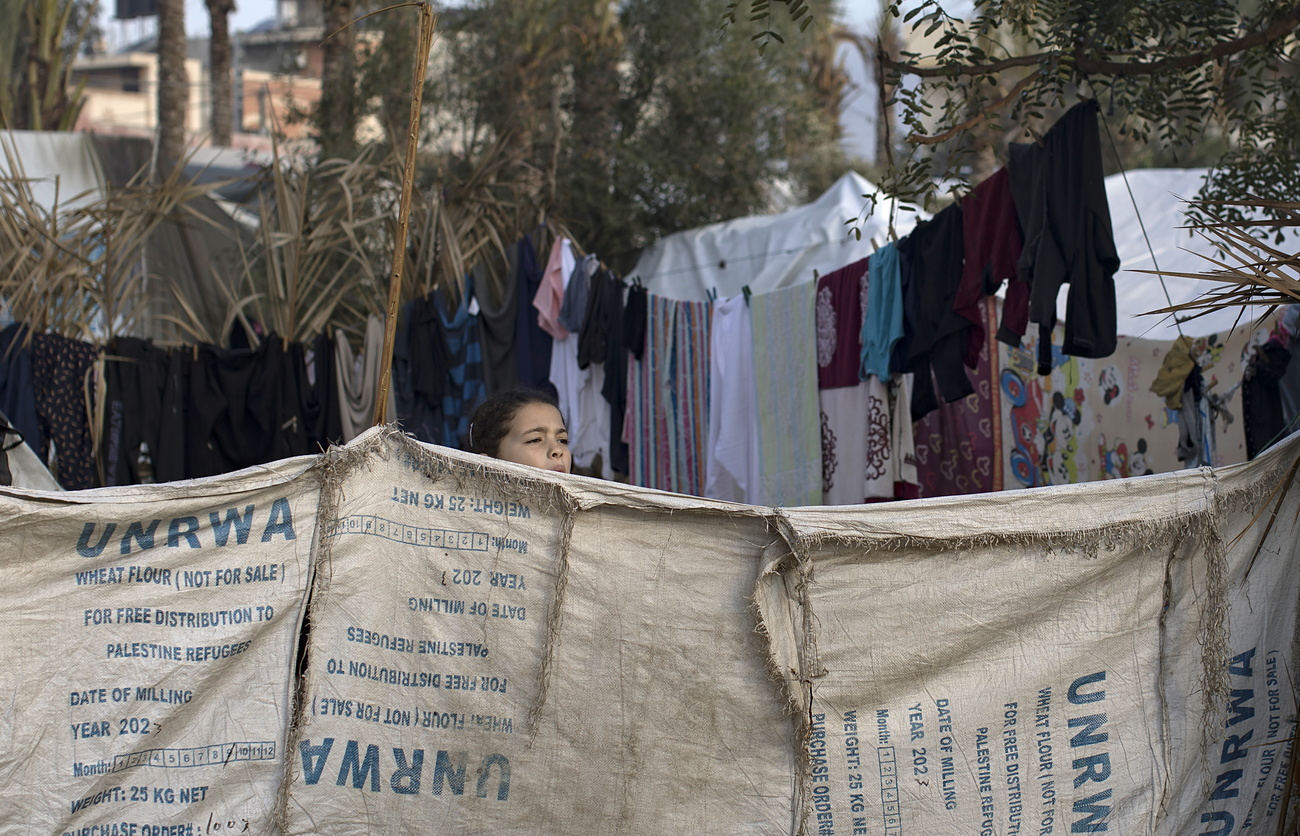
Is there a problem with UNRWA?
Every day seems to bring a new horror in Gaza. Here in Geneva, humanitarian agencies brief us on the situation every Tuesday and Friday. They have been warning us for weeks that northern Gaza was on the verge of famine, that civil order was breaking down.
For multiple reasons (delays at the border, long security checks, straightforward refusal by Israel, or supplies being “spontaneously distributed” – UN euphemism for looted – before they even reach their target group) UN deliveries have not made it through since the end of January.
Then, last week, the obscene tragedy of over a hundred people dead as they desperately tried to get food from a small, unofficial delivery by a non-governmental organisation, supervised by the Israel Defense Forces (IDF). It’s clear many were shot, some may have been trampled to death, although Israel’s accounts of what happened have been muddled. Many countries have called for a full independent investigation into exactly what happened.
But we know already what the root cause of this tragedy was: desperation, and starvation. What wouldn’t you do to feed your dying child? We have already seen people, children among them, swimming out to sea to retrieve the pathetic measure of last-resort food parcels airdropped by governments perhaps hoping to salve their consciences.

More
Inside Geneva: what’s the future of UNRWA?
Humanitarian catastrophe
Even if the fighting in Gaza stopped right now, its people will remain in humanitarian crisis for months to come. Vast areas, hundreds of thousands of homes, have been destroyed: 5% of Gazans are either dead, injured, or missing. Who will be able to fix this?
This week, on Inside Geneva, we take an in-depth look at the one humanitarian agency equipped with the infrastructure, and decades of experience, to work in Gaza. That is the UN agency for Palestinian refugees (UNRWA), founded in 1949 to support almost a million Palestinians who were expelled or fled from what is now Israel, losing their homes and livelihoods in the process. UNRWA’s role was more than that of a classic aid agency, it was also tasked with providing schools, and job opportunities for Palestinians.

More
What are the allegations upending UNRWA’s aid efforts in Gaza?
That was 75 years ago, and many now argue the agency is an anachronism. UNRWA’s head Philippe Lazzarini, acknowledges that “ideally we should be out of a job”, but points out that UNRWA’s continued existence is entirely due to the failure to come up with “a lasting and fair political solution between Israel and Palestine”.
Obviously, that lasting political solution seems further away than ever. In the wake of Hamas’s horrific October 7 attacks, the Israeli government appears to have ruled out a two-state solution. Logically, that would suggest UNRWA has a long future ahead of it, even if for all the wrong reasons.
Political hurricane
But now, UNRWA is in the eye of a political hurricane. Israel claims some staff members (12 out of 13,000 UNRWA employs in Gaza) were involved in some way in the October 7 attacks. On Inside Geneva Nina Ben-Ami, Head of Bureau, International Organizations and UN Division, Israeli Ministry of Foreign Affairs, tells Inside Geneva that “October 7 was a gamechanger” and suggests Israel will no longer work with UNRWA. Instead, she wants other UN aid agencies to step up.
However, all those other agencies are united in saying they have neither the capacity nor the experience to do this. The World Food Programme, cited by Ben-Ami several times, had to suspend food deliveries to northern Gaza because it had become impossible to deliver the meagre supplies allowed in safely to desperately hungry crowds. The tragic incident last week, with over 100 people dying during that small NGO/IDF food delivery, serves as a demonstration that in a humanitarian emergency like this, large and experienced aid agencies are crucial. Not a relatively inexperienced charity accompanied by the armed occupying power.

More
UNRWA funding: how is Switzerland responding to latest allegations?
But UNRWA is now hobbled by the accusations around it. Although Philippe Lazzarini immediately fired the handful of staff under suspicion, before the formal UN investigation was even underway, let alone completed, Israel continues to suggest that Hamas infiltration in UNRWA might be far wider.
Although UNRWA submits every staff member to Israel for checking (this was last done last summer) Ben-Ami told Inside Geneva Israel believes 10% of staff are “Hamas operatives” and that half of them have “family members” connected to Hamas. Even if that were true, having a family member who may have done something wrong would not, lawyers would argue, be relevant.
Where is the proof?
So far, those claims are just that: claims. Some in the Israel government have suggested the actual proof can’t be shared, because it is too sensitive. Ben-Ami reassured Inside Geneva that the evidence would be given to the UN’s two investigative teams (there is one looking at the specific allegations around the 12 staff members, and another looking at the culture of UNRWA as a whole). Those teams are expected in Israel this week.
But, in again what looks like a rush to judgement, UNRWA’s big donors suspended funding within hours of Israel’s accusations becoming public. The organisation, which Lazzarini calls “the only lifeline in a region full of despair”, is now on the verge of collapse, and Lazzarini tells Inside Geneva he fears Israel wants “to dismantle it”.
Other aid agencies and human rights groups question the funding cuts. “Even if the allegations are true, that’s no justification for cutting off funding for the most important aid and relief agency in the Gaza Strip,” Louis Charbonneau, New York director of Human Rights Watch told me.
Jan Egeland, former UN humanitarian coordinator and now Secretary General of the Norwegian Refugee Council, tells Inside Geneva he views the allegations against UNRWA as “incredibly serious”, but that UNRWA, by immediately firing the staff and ordering the investigations, has “done everything right” to handle the crisis, while the donors, in suspending funding have “done everything wrong”.
Egeland, who has just returned from Gaza, describes “endless, miserable displacement” and “famine, chaos, and desperation.” He has spent his life in humanitarian crises, and his focus on the undoubted suffering in Gaza is natural, but many in Israel, claims Nina Ben-Ami, feel their own suffering has been neglected.
‘‘There is a great deal of public anger and feeling of abandonment,” she tells Inside Geneva. “That the UN is doing so much, for so many others, but when Israel is now in a time of crisis, when our hostages are being held…that we are left out. So yes, for Geneva I would say, the voice from Jerusalem, there’s a definite feeling of anger and abandonment.”
UNRWA is a controversial topic, and our Inside Geneva discussion attempts to address that controversy and bring fact to a very polarised debate.
Listen to the latest episode of our Inside Geneva podcast and join host Imogen Foulkes to find out more about the situation in Gaza.
For more insights and discussions from Switzerland’s international city, subscribe to Inside Geneva on Apple PodcastsExternal link, SpotifyExternal link, or wherever you get your podcasts.
For more audio content from SWI swissinfo.ch, explore The Swiss Connection, a podcast with Swiss stories for the world.
Do you want to read our weekly top stories? Subscribe here.

In compliance with the JTI standards
More: SWI swissinfo.ch certified by the Journalism Trust Initiative

















![The four-metre-long painting "Sonntag der Bergbauern" [Sunday of the Mountain Farmers, 1923-24/26] had to be removed by a crane from the German Chancellery in Berlin for the exhibition in Bern.](https://www.swissinfo.ch/content/wp-content/uploads/sites/13/2025/12/01_Pressebild_KirchnerxKirchner.jpg?ver=a45b19f3)












You can find an overview of ongoing debates with our journalists here . Please join us!
If you want to start a conversation about a topic raised in this article or want to report factual errors, email us at english@swissinfo.ch.